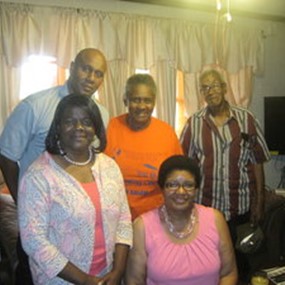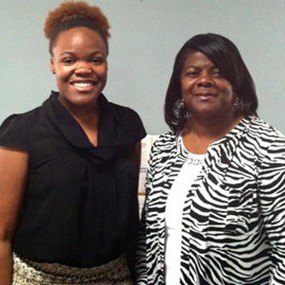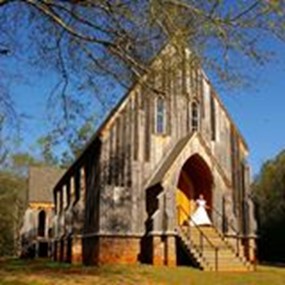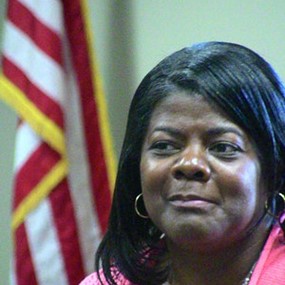Selma Motivates Parker to Carry Lessons Forward
As I reminisce on my summer, I owe it to Selma that I am now more comfortable and motivated to do community work in my hometown or any other place I may learn to call home. For 10 weeks I was compelled to drift away from my comfort zone and adapt to a new environment and way of life.
Living Democracy is definitely the equivalent of an adventure. Although I knew what I was supposed to accomplish, there were few guidelines to tell me where to begin. My prior experiences in civic engagement led me to believe that developing or latching on to a project in Selma would be easy, but moving into unfamiliar territory presented challenges.
What I already knew about Selma could easily be Googled or read in a textbook. I was an outsider with a preconceived notion of what Selma was all about, and it didn’t occur to me that her residents live a different reality than what the world thinks they know. I wasn’t in tune to the things that they valued the most and the issues they were currently pushing to resolve. Most importantly, I didn’t know anyone.
My first few weeks revolved around meeting and greeting those who call Selma home. By the end of my summer I realized that those few weeks were key to my entire adventure. The people who live within a community are the same people who dictate the status of their environment, the same people who make their community work.
As I ventured out to make connections with the people who know Selma best, the city’s character gradually began to unfold. Every person I met welcomed me with open arms. Although I fumbled at times, they didn’t seem to mind and instead invited me to get involved.
I was amazed by how passionate Selmians are about their community. From the highest political figures down to the common man, young and old, they showed a tremendous respect for their hometown and their visions through civic action.
Upon beginning my Living Democracy journey I desired to work with a youth group to promote unity between the older and younger generations. I believe better communication between the two groups can lead communities toward the future they envision. Author James Baldwin said, “Children have never been very good at listening to their elders, but they have never failed to imitate them.”
Selma has a significant body of elders committed to leading by example. While the Selma City Council may dress in suit and tie and talk politics in the public eye, they can also be spotted at city events hustling in and out of crowds to ensure the success of the show and not just attending as a representative.
Aside from lesson plans and exams, some of the professors on the Concordia and Wallace’s campuses are also in the boardroom planning and discussing ways to increase leadership and diversity among every day citizens. Despite growing fears of the possibility of another church shooting like the one in Charleston, South Carolina, places of worship like Temple Gate Seventh Day Adventist Church are teaching its congregation to continue to exhibit agape love and reach out to newcomers.
Seeing so many different groups working to change Selma for the better made me take a step back and examine my own community. Selma is largely rural while my hometown in one of the largest metropolitans in the state of Alabama, yet I believe there are ways in which the Magic City could learn from the Queen City of the Black Belt.
While working toward making a difference, I learned that successful community work requires a network of people to bring about change. Sometimes it truly boils down to who you know, not just what you know. People are the most important ingredient in doing community work. Diverse backgrounds, skills, and perceptions working together can ensure that a community that derives from all walks of life is well represented.
I was also exposed to the reality of trying to make a difference but having to work alone. Although a community may have the same vision, sometimes they have opposing views on how to get there. When my first project didn’t go as planned, I turned to hosting a college preparation workshop for high school students. So many other initiatives were happening at the same time as my event, and I began to feel as though my final project would be unsuccessful too.
One person attended the workshop, but with the help of Glenda Deese, I was well prepared and the show went on. In the end the student gained knowledge that will help her navigate through not only college but through life as well, and I left knowing I had still made a difference. One person can create a domino effect where what they’ve learned will be passed on to the next person they encounter. That made the experience worthwhile.
It has been almost two weeks since I’ve driven down Broad Street. It feels like a lifetime has past since I’ve stood atop the Edmund Pettus Bridge while scarfing down a mouthwatering panini from The Coffee Shop.
I didn’t realize how great an impact Living Democracy would have on my personal development until nearly halfway through my visit to Selma when I began to see all of the preparation and lessons from my previous Civic Engagement course unfold right before my eyes. This experience has taught me to be more aware of what’s happening in my community. It also inspired different ways I should interact with others to form a better idea of the changes that people need and want to see.
Overall, I believe I left Selma with a better sense of what community is and what it means to be an agent of change. While at first I had no idea what I was doing, I know now that I was living democracy. I was living Selma.
Tags: Selma



